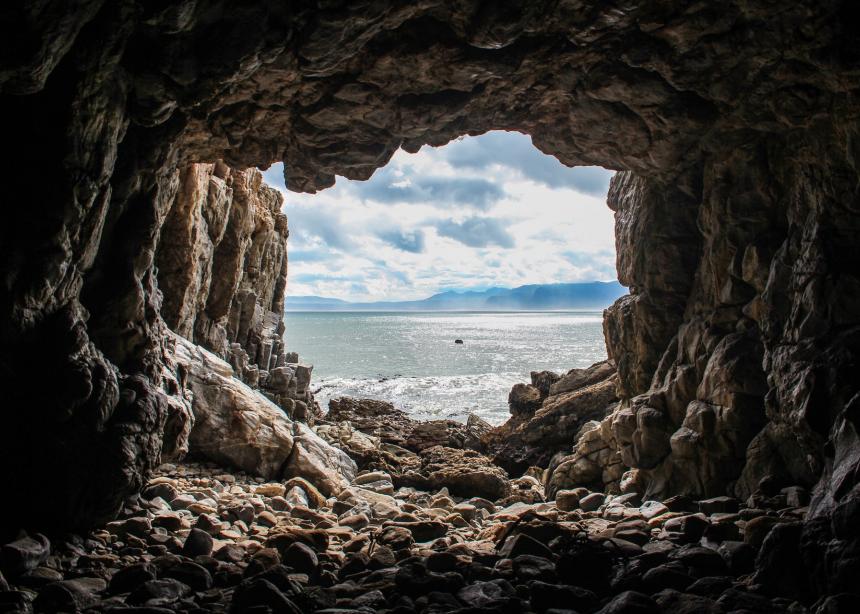I spend at least 30 minutes a day in silent prayer and meditation, but sometimes this isn’t enough. A few times a year I need a fuller and deeper experience of silence. I need solitude.
Paul Tillich says, “Loneliness expresses the pain of being alone, and solitude expresses the glory of being alone.”
Being forced to be alone for long periods of time creates isolation and disconnection. Yet there are many examples in the Bible of people, like Jesus, seeking to be alone for days or even weeks, in order to find clarity, integration and a deeper connection to one’s true essence and Divine Spirit. I believe this kind of solitude is an essential spiritual practice. We often call this kind of solitude a “silent retreat.”
I’ve been as busy as ever during this pandemic, maybe busier. I’ve had more to do while simultaneously experiencing less connection with the people I’m doing these things with and for. This fragmented reality has made me feel disconnected, isolated and even a little lonely at times. A part of me longs for more interaction with others. Yet another part of me longs for solitude.
Over the past year it seems there’s always something left undone to get to tomorrow:
- More people to check in on.
- More technology to learn and adapt to.
- More meetings to schedule online.
- More to figure out on being a faithful church now and moving forward.
- More processing of why some people have disengaged from our church community, if it’s permanent, and what I could have done better.
- More time trying to get myself motivated to preach into a camera.
- More working on my days off than I’d like to admit because I feel the weight of responsibility and expectation more than ever before.
I imagine the same is true of your pastor as well.
Some pastors get addicted to this weight. It swallows them up and becomes their identity. The responsibility and expectations placed on them as “pastor” defines who they are. They would be lost without it.
I prefer to manage the weight rather than lose myself in it. So I try to carry and balance it until it starts crushing me. And it always does, eventually. When I feel the weight getting too heavy to bear, I know I need to take the time to release it in a healthy way. That requires solitude.
On silent retreats it’s not just television, smartphones, emails, calls, texts, news updates, social media and people I leave behind. I also leave behind the weight of my responsibilities and identity. I stop, drop and roll before I enter the sacred ground of solitude. It’s become a ritual. I pause and drop whatever burdens I’m bringing with me and I envision the expectations that I and others have placed upon me rolling off my shoulders before I begin my retreat. Then I’m free to enter and abide in the emptiness this creates, which is not as easy as it sounds. It’s hard work.
One of the hardest things to let go of is our sense of importance. We think our business, workplace, church, organization or family couldn’t live without us for five days. We have to be accessible. What if . . . ? Yet, none of us is as important or as irreplaceable as we think. That’s just one more illusion to let go of, so we can spend time in the void its loss creates.
Josh Waitzkin, an American chess master and author, says that human beings have an impulse to fill empty space as soon as it arises, but the discipline of not filling that empty space is extremely powerful and transformative. He calls this “the cave process.” The cave process is about sitting in space that is empty enough to escape the inertia and reactivity in our lives. Inertia is the force pulling us to where we’re heading, and reactivity is the force pushing us away from where we are or have been.
We tend to fill empty space as quickly as possible. It terrifies us. Yet this empty void contains profound insight and truth that can’t be found anywhere else. As American author Joseph Campbell reportedly said, the cave we fear to enter holds the treasure we seek. As Jesus models it, resurrection comes through three days in the cave of death.
This pandemic has given many of us opportunities to spend time in the void, in the spaciousness of emptiness. Let’s not waste these opportunities. Sooner than we think life will be back to “normal.” What will we have done with the caves of emptiness we were offered?
Troy Watson is a little emptier and lighter since his solitude last week.
Read more Life in the Postmodern Shift columns:
Speculating about berry-filled trees
Losing freedom?
The joy connection
Judgment versus discernment
Finding the ‘growth edge’ in our lives




Add new comment
Canadian Mennonite invites comments and encourages constructive discussion about our content. Actual full names (first and last) are required. Comments are moderated and may be edited. They will not appear online until approved and will be posted during business hours. Some comments may be reproduced in print.